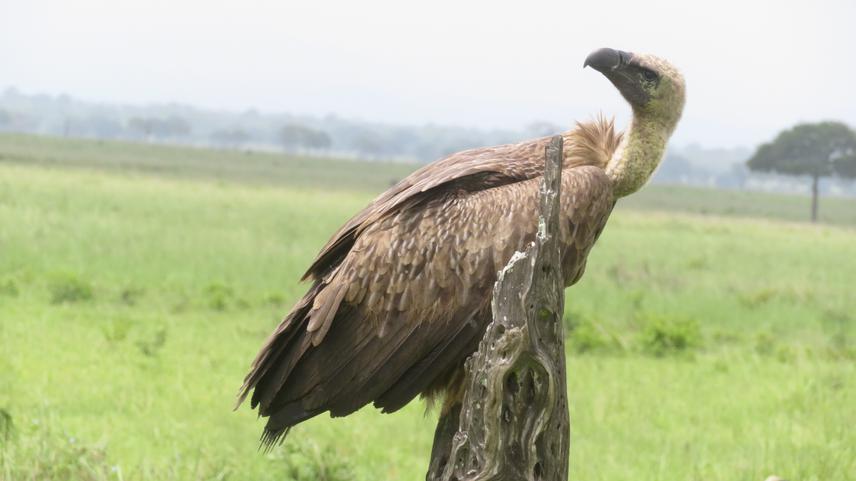Lucia Romward Reveliani
White-backed Vulture (WbV) is the best bio monitor and umbrella species for vulture conservation in Africa (Thompson et al., 2021). Meanwhile, WbV is on verge of extinction (IUCN,2023). Among major threats to WbV are poisoning and habitat loss (Bracebridge & Kendall, 2020). Poisoning is mainly practiced by poachers who poison carcasses in order to eliminate vultures (Mateo-Tomás, 2013), this is because vulture’s sky hovering would disclose their location (Ogada et al., 2016). Meanwhile, livestock keepers unintentionally kill vulture by poisoning livestock’s carcasses targeting carnivores depredating their livestock (Safford et al.,2019).

White- backed Vulture. © John Lyakurwa.
In Tanzania, there is high decline of WbV population and their potential habitat (Kendall &Virani, 2012), the extent of vulture poisoning is high (Kendall & Virani, 2012). Serengeti-Mara Ecosystem where LGCA is the part, is one remaining habitat for WbV in Tanzania (Bracebridge &Kendall, 2020). However, the ecosystem is under pressure of rapid human population growth and overdependence of nature for livelihood (Kideghesho et al., 2006). There have been initiatives to conserve WbV in Tanzania, for instance, monitoring Vultures population in by Wildlife Conservation Society (WCS) and researching the breeding population and behavior of WbV by Grumeti Fund.
To date, little is known about WbV habitat needs and selection and less has been done on assessing community attitude toward vultures in LGCA. Future conservation requires identification of suitable remaining habitat and the threats to it and to the WbV. Nevertheless, the assessment of community attitude and assessing social cultural practices that threatens Vultures is a sound initiative to conservation of the WbV. The goal of this project is to determine the habitat selection of WbV in the Loliondo Game Controlled Area and assessing community attitude to Vultures which will later be used in enhancing public awareness on the value of Vulture and their conservation.